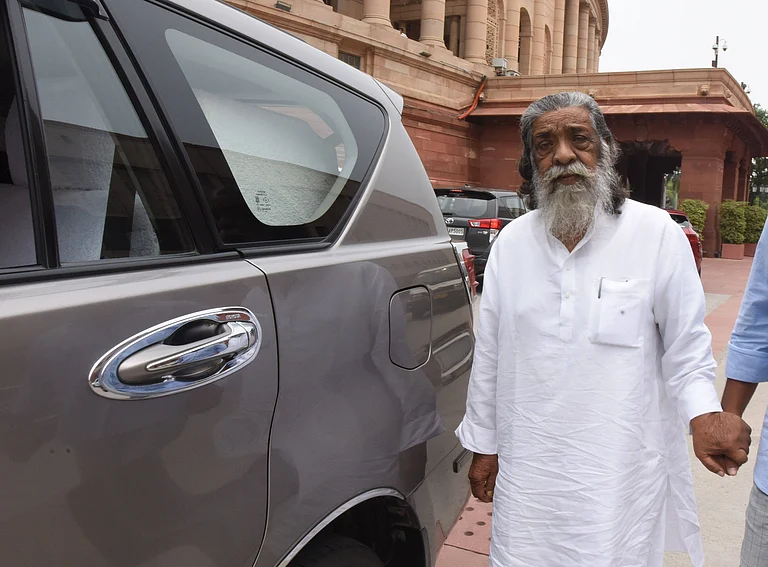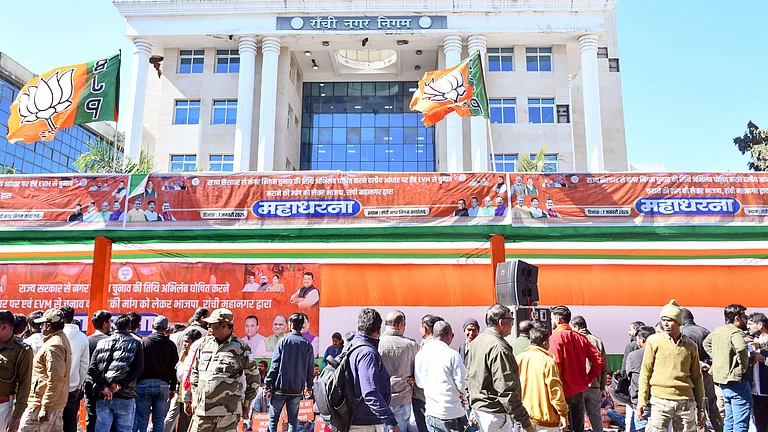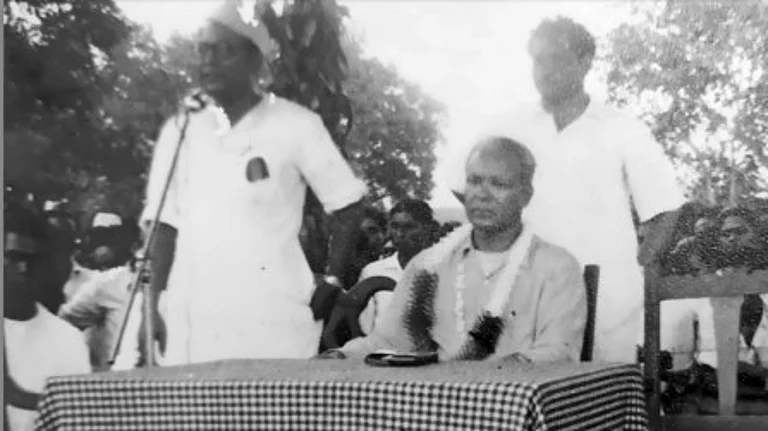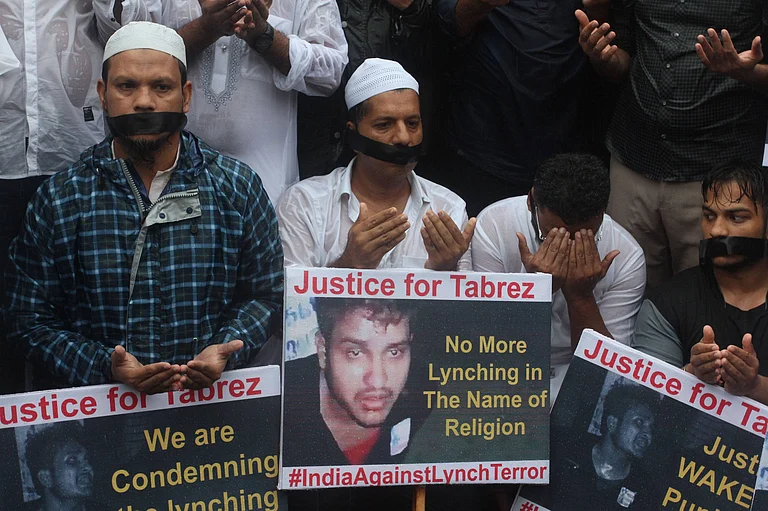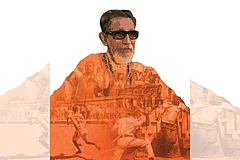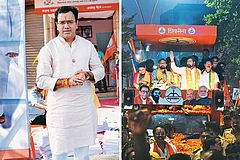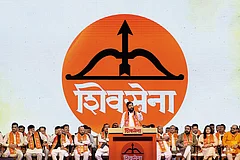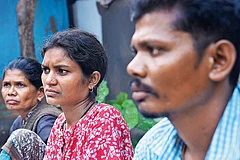On November 15, the 150th birth anniversary of Adivasi icon Birsa Munda, Union Home Minister Amit Shah renamed Delhi’s Sarai Kale Khan Chowk as Birsa Munda Chowk. According to BJP leaders, this is the first time in the history of independent India that an Adivasi leader’s name has been etched on the streets of the National Capital.
Coincidentally, thousands of miles away, just a day before—in a different time zone—a 22-year-old indigenous Member of Parliament from New Zealand, Hana-Rawhiti Maipi-Clarke, rocked social media by performing Haka on the floor of the House. Her protest through this traditional Maori dance form against a controversial bill that would allegedly curtail the rights of the indigenous people made it a spectacle.
As the protruding tongue, stomping feet and thumping claps sang paeans to the rights of the indigenous population in New Zealand, the dream of a Santhal or an Oraon flexing bow and arrow on the floor of the Indian Parliament remains a distant dream. What comes as an alternative is mere symbolism—the occasional nomination of an Adivasi as the President or the renaming of some chowks.
Coming a week before the results of the Assembly polls, the renaming of the Delhi chowk seems to have a broader political relevance. Jharkhand has 26 per cent Adivasi population. Since the formation of the state, Adivasis have played a formidable role in determining the fate of political parties. In 2019, when the Jharkhand Mukti Morcha-led coalition came to power, they won 25 out of the 28 reserved ST seats. In the 2024 Lok Sabha polls as well, the ruling alliance maintained its tally and won all the five ST-reserved Lok Sabha constituencies.
BJP on a Roller-Coaster Ride
The situation has not always been like that. Though the Adivasis consolidated in numbers behind the JMM, in 2014, the BJP got 11 ST-reserved seats. It was the time, the political analysts claim, that the BJP took the risk of playing with Adivasi sentiment and appointed a non-Adivasi CM— Raghubar Das. Since the formation of the state, Jharkhand has been through many periods of turmoil but never had it expected to have a non-Adivasi face at the helm.

Things went south very soon as within a couple of years Das tried to tinker with the Chota Nagpur Tenancy Act, 1908, and the Santhal Pargana Tenancy Act, 1876. Adivasis consider both these acts as their only safeguard for land that they gained after a long struggle against the British. Das wanted to amend a few sections of these acts to pave the way for the easy transfer of tribal land to the non-tribals for developmental purposes. Adivasis across the state took to the streets and started a protest that Das was not equipped to handle. In Khunti district near Ranchi, Adivasis etched constitutional provisions that guarantee Adivasi rights on the large stones that they traditionally install on roads in memory of their deceased ancestors. They started their own cooperative bank and rejected any state intervention. Thousands of FIRs had been lodged, hundreds of Adivasis were arrested. Facing such unprecedented resistance, Das took a step back and withdrew the amendments.
When Luck Strikes
Hemant Soren found an opportunity to use this resentment in his favour. Banking on this sentiment, he rode over Adivasi votes and secured a comfortable victory in 2019. After coming to power, in consecutive years, Soren brought the Sarna Code Bill, passed the domicile policy and proposed to increase the reservation of SC, ST and OBC communities. Though none of the bills got the sanction of the governor, his identity assertion made him a ‘hero’ among Adivasis.
The BJP, on the other hand, unable to counter Soren’s appeal, used the tried and tested politics of symbolism to woo Adivasis. They nominated former governor of Jharkhand, Draupadi Murmu, as the first Adivasi woman President of the country. In 2023, PM Modi himself visited Birsa Munda’s village on his birth anniversary. After paying floral tribute to the tribal icon, he declared projects amounting Rs 20,000 crore for the Particularly Vulnerable Tribal Groups (PVTG). The government also declared his birthday as Janjatiya Gaurav Diwas.
The traction that the party started gaining through such political symbolism fell on its face as the ED arrested the CM for his alleged role in a land scam. It again boosted Soren’s popularity. Before the Lok Sabha elections, one of the JMM supporters from Ranchi said: “They have arrested an Adivasi. How can we vote for them?” This sentiment in favour of Soren further soared after he was released on bail. Soren’s electoral plank became clear—“They come from outside to take away Jal, Jungle and Jameen of Adivasis.”
Tapping Dissent
As Soren used the outsider sentiment as a bait, the BJP took a leaf out of its playbook in Assam and invoked the fear of Bangladeshi infiltrators who are allegedly taking away Adivasi land and women. The BJP also rightly tapped the internal dissent within the JMM. When Champai Soren was asked to resign after Hemant Soren came out of jail, the BJP came to his rescue. Amidst speculations, Champai joined the BJP.
Known as ‘Kolhan Tiger’, he will help the BJP to get at least three-four seats in the region, think analysts. Kolhan has 14 assembly seats of which nine are reserved for the STs. In 2019, the BJP failed to win a single seat from this region. However, in 2019, the party fought alone. This time, they have the All Jharkhand Students Union (AJSU) siding them, along with a queue of former Adivasi CMs—Babulal Marandi, Champai Soren and Arjun Munda. Champai is fighting from his bastion Saraikela and his son Babulal is fighting from Ghatshila. The BJP has also fielded the family members of former CMs Das and Munda from this region.
Earlier, the BJP also took Hemant Soren’s dissenter sister-in-law Sita Soren into the party and fielded her from Dumka constituency in the 2024 Lok Sabha elections. Though Dumka, being the electoral bastion of Soren family, did not extend its support to the dissenter, the party again fielded her from the Jamtara Assembly constituency against Congress leader Irfan Ansari. The latest controversy that erupted after Ansari allegedly called Sita ‘rejected’, put the INDIA bloc in a spot. Sita immediately invoked her identity and said: “His remarks are an insult to women in the tribal community. The community will never forgive him.”
Course Correction?
Apart from allegedly ‘breaking’ the JMM and elevating Adivasi leaders, the BJP also did some course correction. In both Chhattisgarh and Odisha, the party made Adivasis Chief Ministers to rectify their Jharkhand expedition. If they manage to win the Jharkhand assembly election this time and make an Adivasi leader the CM, it will be the first party in the history of Independent India to have three Adivasi CMs in three northern Indian states. It also goes with PM Narendra Modi’s electoral slogan—‘Ek hai to safe hai’ through which he has tried to overcome the Opposition’s pitch of identity politics. The BJP, by its foundational principle, considers Adivasis as Hindus—a narrative that Soren has been trying to fight for years. Their victory would also bolster their attempts to portray Adivasi as Vanavasis or forest dwellers.
While describing the national impact of a BJP’s victory in Jharkhand, political analyst and senior journalist Anand Kumar says: “If they manage to win the state, it will be the third mineral-rich state after Odisha and Chhattisgarh that goes to them. Their victory would establish whatever efforts they made to win over the tribals were successful.” At the national level, it would impact the unity of the INDIA bloc as they cannot afford to lose another tribal-dominated state, he adds.
MORE FROM THIS ISSUE
The BJP would probably push Babulal Marandi or Champai Soren as its CM face if they comfortably come to power. Adivasi scholar and academic Santosh Kiro thinks that if the party comes to power, Jharkhand would become a centre for mining. “For the BJP, Jharkhand is just a state of mining. They don’t want to win the state for their love of the people—rather, they want it for their love of mines,” he says. He, however, doesn’t feel that there would be much political impact if the BJP wins. “There will be an environmental impact,” he emphasises.
(This appeared in the print as 'Mining Adivasi Votes')








